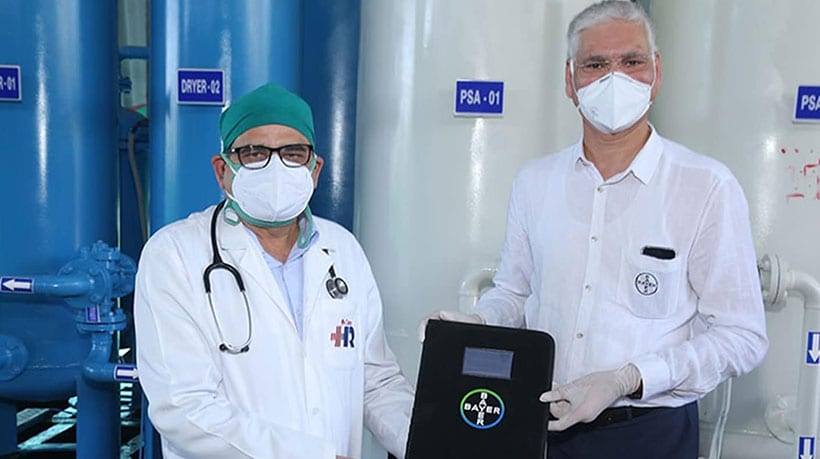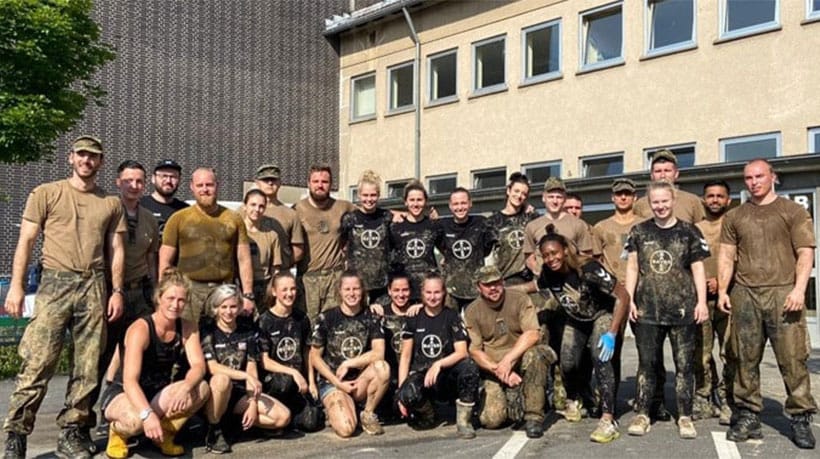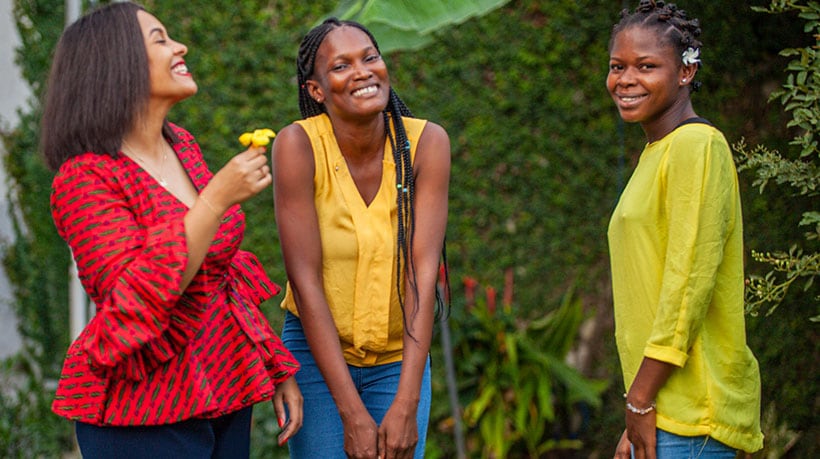Tackling our societal challenges together

- At a Glance
- Reporting and Transparency
- ESG Ratings and Rankings
- Environment
- Social
-
Governance
- Sustainability in the Supervisory board
- Bayer Sustainability Council
- Bioethics Council
- UN Global Compact
- Product Stewardship
- Supplier Management
- Group Regulations
-
Group Positions
- BASE
- Bioethical Principles
- Protection of Biodiversity
- Position on Global Product Strategy
- Position on Responsible Care
- Position on Deforestation and Forest Degradation
- Position on Insect Decline
- Raising the Bar on Crop Protection Safety Standards
- UN Sustainable Development Goals
- Position on Sustainable Beef Production
Social inequality in our world is growing and is exacerbated by challenges such as climate change and pandemics. Access to adequate health care or sufficient and quality food is limited for many parts of the world's population. At Bayer, we want to contribute to a world where everyone has access to enough food and can live a healthy life. That is why we support social projects worldwide with renowned partners in the non-for-profit area, and also with visionary social entrepreneurs.
The commitment to science, society and the common good has a long tradition at Bayer. Friedrich Bayer Jr. established the company’s first donation and foundation programs already back in 1897. Nowadays, Social Innovation & Corporate Charitable Giving is an integrated element of Bayer’s open innovation ecosystem, sustainability strategy and mission.
Focus is on new answers for challenges related to the UN sustainable development goals around nutrition, health, gender equality and access to water, in alignment with our mission of Health for All, Hunger for None. In our corporate charitable giving programs, we believe in the system-changing power of innovation, be it through local community initiatives or global impact partnerships. We want to promote societal progress by supporting initiatives that tackle the root-cause of issues and ideas with potential to make a lasting impact for change. In each country where Bayer is present, we drive societal engagement programs through donations and the support of social innovators.
Responding to disasters through humanitarian assistance also plays a crucial role in Bayer’s social commitment. With our Disaster Relief programs we support communities affected by natural disasters and public health crises, such as the COVID-19 pandemic.
Bayer’s global and local foundations (Africa, India, USA) are the philanthropic arms of Bayer and generate impact in line with our mission for “Health for All, Hunger for None”.

Insights into some of our charitable projects all over the world:
Turkana County is the largest county in Kenya, but only 30% of it is viable for agriculture. Extreme climatic conditions make the area water stressed contributing to drought, hunger, and severe malnutrition. To improve the livelihoods of the people of Turkana, Bayer Fund and PanAfrica empower the communities to rehabilitate unproductive lands, gain access to clean water, and ultimately grow own nutritious foods.

Together with Fundación Nemi, Bayer Mexico engages in a women development program active in various communities in Mexico. The objective is to generate a change in women’s lives by promoting well-being and development, strengthening their material, emotional and social environment, in which they raise their children, their families and communities. It´s a program based on women's rights that promotes self-awareness, gender equality, to transform lives and maximize benefits beyond health, education and empowerment. This is a complete-integral training and support program aimed to women from marginalized communities that offers and develops content as women's health care, self-health care, responsible contraception, and prevention of premature pregnancies.

H2O (Help-2-Others) Water Wheels enable people in remote, water-scarce communities in Pakistan to roll water from its source rather than carry it on their heads the traditional way – in terracotta pots, which are not only heavy but have a limited capacity. Together with the nonprofit Tayaba Organization, Bayer alleviates the physical burden on women and children of lifting heavy loads, thereby reducing injuries, and aims to improve gender balance (Water Wheels are gender-neutral, whereas the traditional method is perceived as “women’s work” in local communities). By freeing up time, Water Wheels also enable women and children to focus on educational and economic opportunities.

For a labour-intensive profession that heavily depends on various external factors, income from farming is rarely proportionate to the risks. The pandemic and the subsequent lockdown also caused unforeseen problems for smallholder farmers. To help them through this critical period, Bayer Foundation India partnered with relevant stakeholders on training smallholder farmers on diverse topics to help improve yield and minimize loss due to pest attack.

With science, technology and innovation driving the world economy, it’s critical to ensure there is equitable access to a quality STEM (science, technology, engineering, and mathematics) education for all students. Bayer Fund, a philanthropic arm of Bayer in the US, supports quality programs to build student curiosity, understanding, fluency and skills across the spectrum of STEM disciplines for students from kindergarten to grade 12.

Nutritional supplementation before and during pregnancy is essential for mothers-to-be and babies’ health alike. In China’s province Sichuan, many underserved women receive supplement donations of Bayer’s Elevit product together with free health consultation from obstetrics and gynecology physicians. This project is part of the global Nutrient Gap Initiative and the idea to help impact the first 1,000 days of life which is related to the development of pregnant women and children in the long term.

Devastating floods in parts of Germany have severely affected many people, especially people in the wine region Ahr. Besides corporate donations to German disaster relief organizations, Bayer employees volunteered to help affected people and winemakers on the ground.












